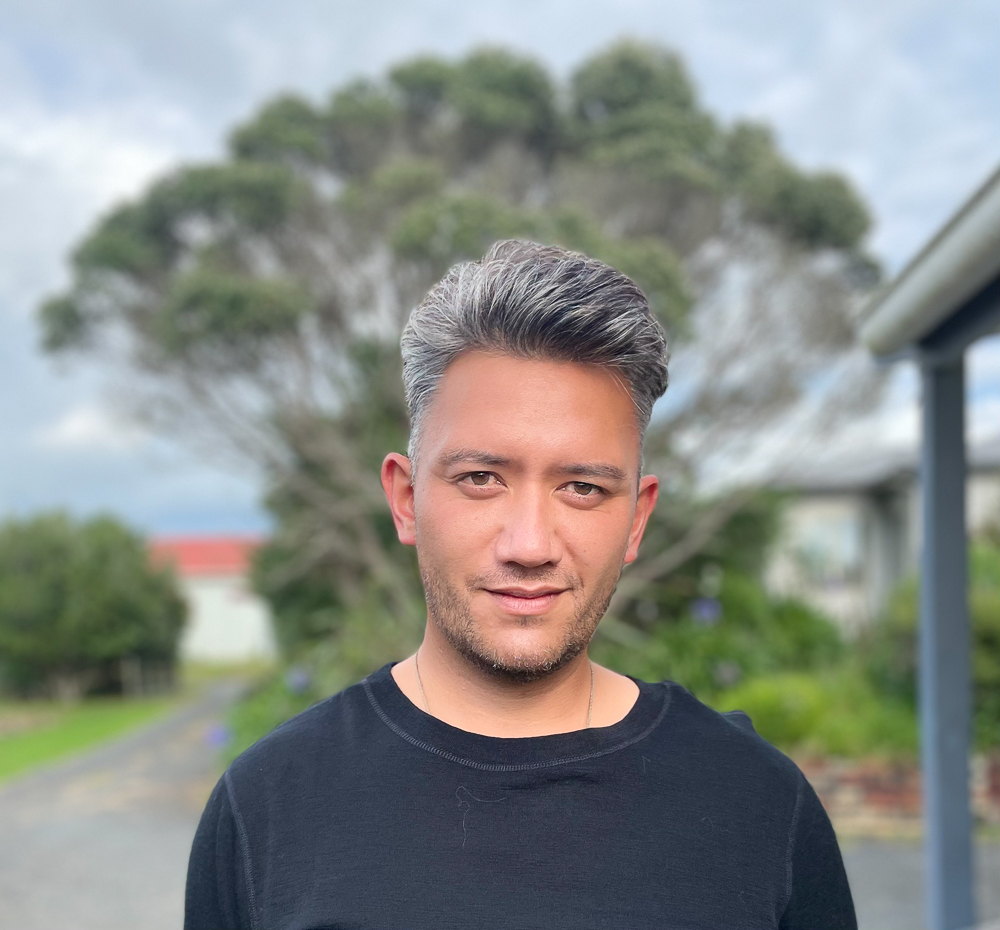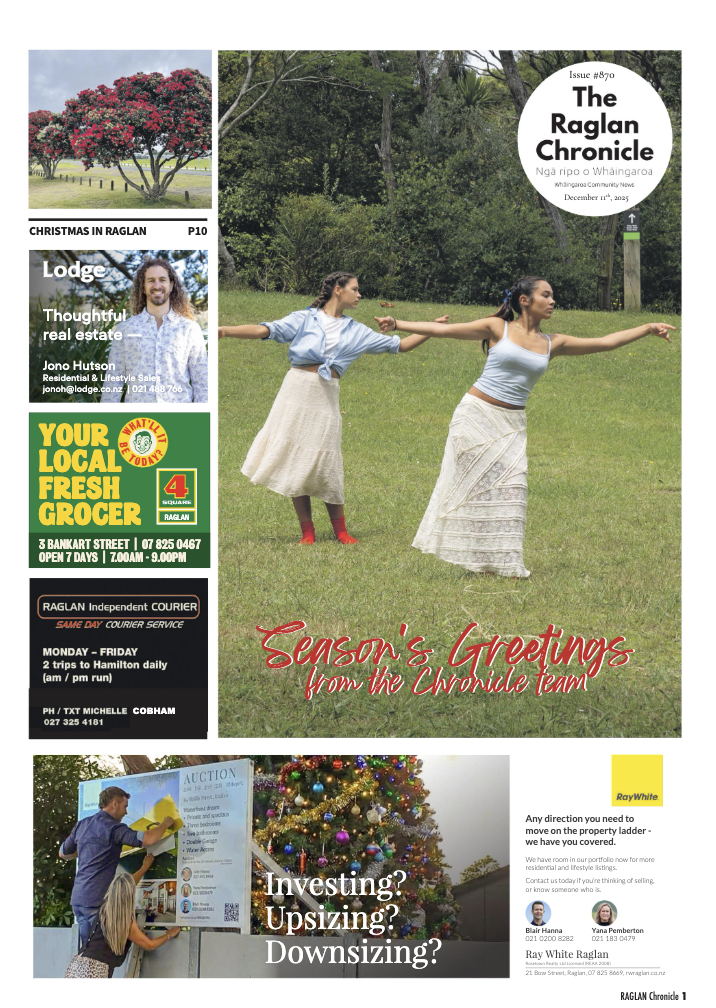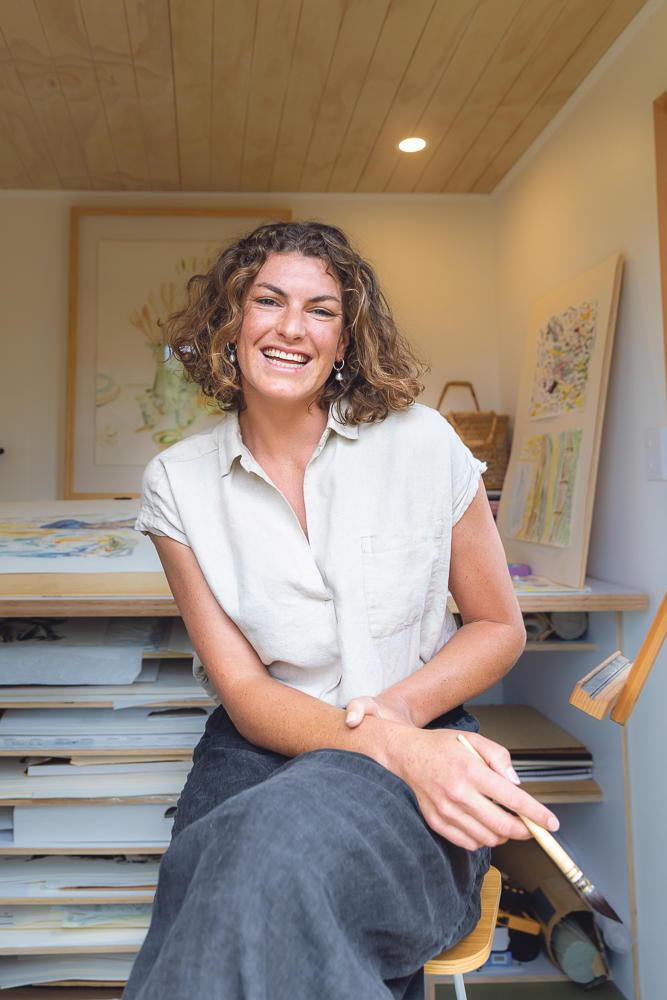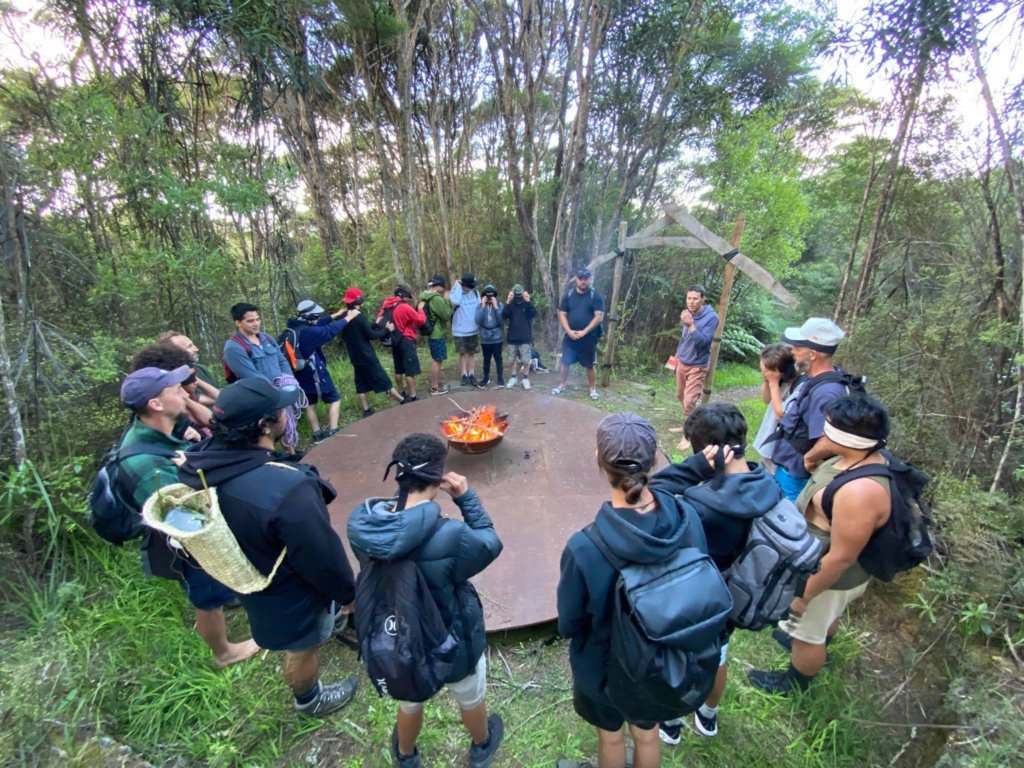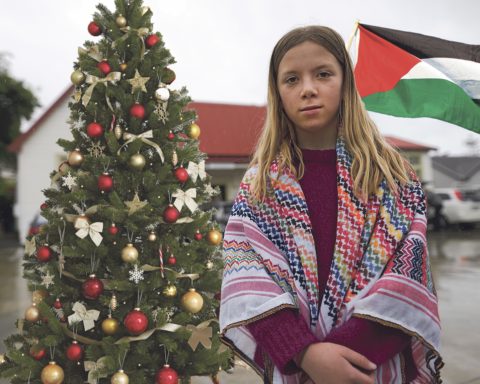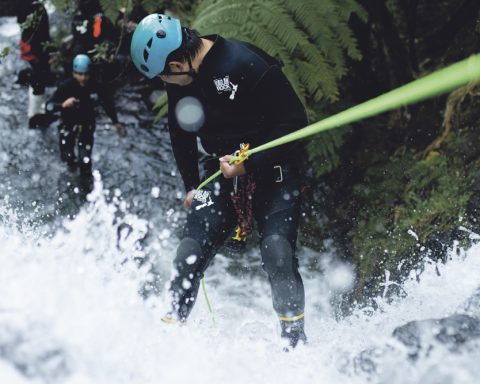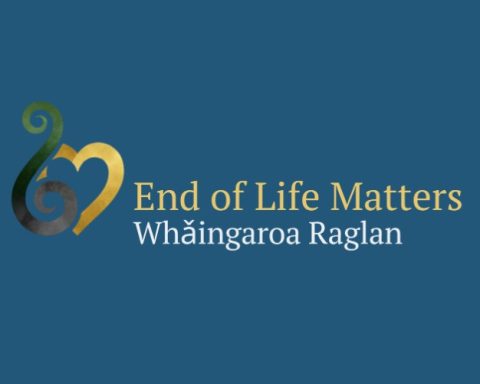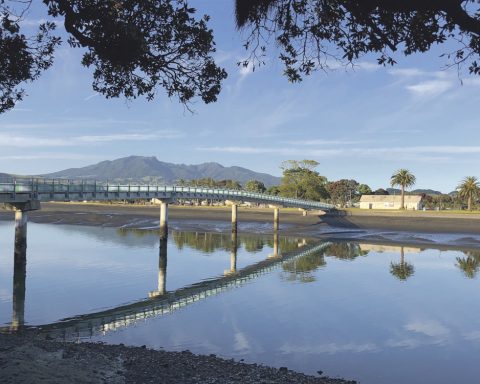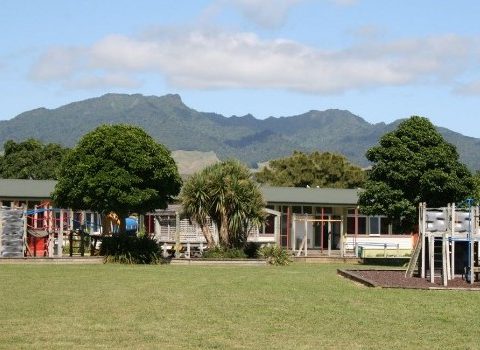This month I sat down with Mike Edmonds, outside on what feels like the first sunny day in weeks here in Whāingaroa! Mike was born in Glen Massey Waingaro, before heading overseas and then coming home to settle in Whāingaroa as an adult. He now works with Poihākena Marae and Te Whatu Ora Waikato to promote positive health outcomes for vulnerable members of our community.
Kia ora Mike! What is your relationship like with your mental health? And is it something that you consider on the daily?
I would say at the moment, I’ve got a pretty good relationship with my mental health. And it is something I always consider every day, if not all day. A few years ago, I started creating habits in the morning that would start me off for the day, such as making my bed, having a stretch, doing some mindfulness exercises. My mental health feels pretty normal now. And I like to say now because not every day is a good day and not every day is a shit day. Through my 20s I thought life should be about being happy, doing amazing things and earning a lot of money. But now I’m in my 30s and realising that those things aren’t important to me; it’s experiences that are important. Money just buys you a small hit of fun, but at the end of the day, are they long lasting memories? No. My bills are paid, I’ve got food in the cupboard, and I live in a beautiful spot. Especially with my job, we try to deal with the underlying health problems in our community and what they are and there’s simply a lack of fresh water, food and housing. And I wake up quite happy because I have all three. That perspective is important.
What was your relationship like in the past with your mental health?
Well, I was a really shy, reserved teenager. I didn’t say a peep. I was in chess class for sports, I did advanced mathematics. I always played single player sports, all because I’m extremely introverted. Like, the highest level of introversion. But it’s about learning and understanding that. I think introverts just get their energy from inside. So if I’m needing that, I just take myself away and have my own time and then release myself to the world. But as a teenager, I would become such a recluse because I didn’t know what I was experiencing and that led to a very challenging period of my life. I dealt with addiction and I was dealing with my sexuality at that time. You know, I didn’t come from a conservative family, but I came from a strong Maori family where you don’t talk about your feelings, you don’t cry, you don’t show any sort of emotion because it’s a sign of weakness. So, my outlet was drug and alcohol abuse, parties, week-long benders. I think what brought me out of that was not what I was doing, but the effect I was having on the people around me. So through my 20s I guess it was dealing with that, trying to discover who I am as a person. I had no idea in my 20s, I didn’t know what I wanted to be, didn’t know who I was. In your teens, you’re pretending to be someone else, then in your 20s you’re just learning how to deal with that person you pretended to be, then in your 30s you realise actually, you know who you are and you’re accepting the person you are. And I’m four years shy of 40 now and maybe my 40s will be even better!
What was it that got you through those really tough periods?
You know, through my teens and early 20s I was always a bit of a loner. I didn’t really have a close knit group of friends that I could rely on, or family members. I guess what got me out of that was I became ultra focused on a single thing. And that’s probably not healthy either. But it meant that I could focus on, for example, my career at that time. And everything I did was intentional. I started small with little goals and then every day, I started building on those goals.
What are some of the lessons that you’ve learned over your journey?
I guess they’re very much lived experiences. When you fall off the wagon, just pick yourself up, and get back on it. And that’s happened a number of times in my life. Don’t beat yourself up, if you relapse into addiction, if you don’t achieve that goal that you put in place. Just always get back up and try it again or try in a different way.
How has your queer identity been wrapped up in your mental health?
If I’m being honest it’s something I’m still dealing with. I feel moving to Australia in my teenage years helped me accept the fact that I am homosexual. It was interesting, but even living in Sydney at the time, it was difficult being gay. There’s a certain image that you need to uphold, which I didn’t feel I quite fit into. Being a minority, Māori, as well as being homosexual in a space that I already felt uncomfortable in was challenging and something I’m still dealing with now. I’ve always found that tricky. You know, when people say do you identify as something? I identify as Maori first and foremost. My sexuality is that I prefer the company of men and I’ve never really let my sexuality define the person I am throughout my entire life. Being homosexual is just my preference of sexual partners. It honestly doesn’t define the person I am.
What are some of the tools in your toolbox?
Setting up really healthy routines in the morning is important to me, because it starts your day off being successful. I have a relationship with the moana. When I’m managing my own stress levels, if I’m feeling anxious or depressed, instinctively I’m attracted to the moana. I will go down there, do a karakia, swim for a moment, and just speak to Tangaroa. I sit there and just have some time for myself. There’s something about diving in the water and being almost flightless and thinking everything’s gonna be okay. Those are the main tools in my toolbox. And like I mentioned earlier, if you fall off the wagon just pick yourself back up and get back on. Understand that nothing’s perfect.
What are you currently working on for our community?
Through COVID, we started helping the community’s response to COVID 19 through Poihākena Marae. And then in the last two years, we’ve created a relationship with Te Whatu Ora. Our role is promoting positive health outcomes for our most at risk whanau members. A lot of our whānau unfortunately still live in places where they don’t have clean drinking water, they don’t have enough kai, and they don’t have a warm roof over their head. So we’ve set up clinics at rural marae. That’s something we started at the end of last year in partnership with Raglan Medical and a whole bunch of other health providers. And that was the first step we could take to promoting better health outcomes. We do fortnightly clinics from Mai Uenuku ki te Whenua Marae and Te Papatapu Marae. One of the barriers, especially for Maori and Pasifika people, is accessing healthcare, so we bring it to them, GP services, mental health services, social services, we’ve made all of our clinics free. There’s no co-payment, there’s nothing. I am very passionate about the mental health of our rangatahi. Aotearoa has the second highest youth suicide rates in the world and young Māori men have the highest suicide rates in our country. I myself have experienced suicidal thoughts and feel a drive to do whatever I can to reduce this.
Let’s be genuine about wanting to help people, let’s see what we can do as a community to work together for all the people of Raglan; and it’s not just for Māori and Pasifika, it’s the entire community. So I guess watch this space for us; it’s a work in progress. It’s spreading by word of mouth and it takes time to regain trust in this space. We had a clinic on Friday and it’s nice to see the outcome of where we started to where we are now. Especially with a lot of the families we’re helping, they came to us with many different ailments; now here we are at our sixth clinic, and they come into the kitchen, they’re helping us cook and set up. They’ve now become champions of the clinic themselves and promoting the services. It’s giving their mana back to them and just reminding them that everything they do has an impact on their future generations. Please speak up if you need some help.
